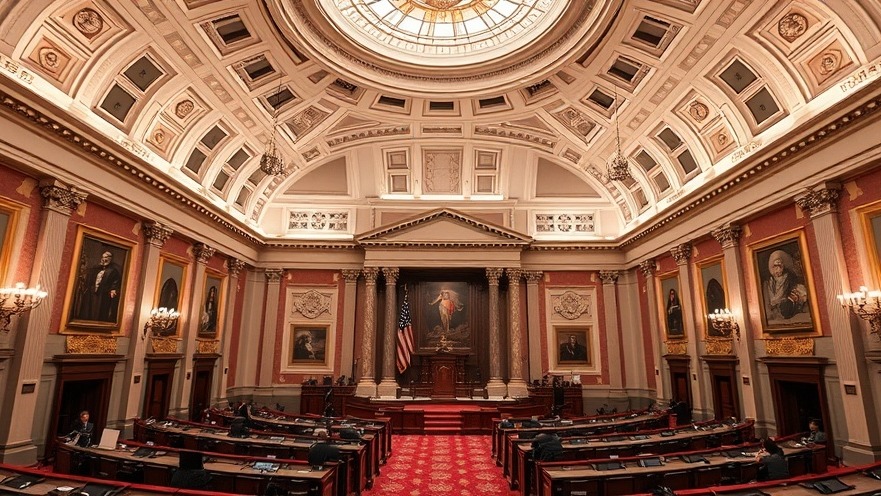
Abbott's Push for Quorum Break Penalties: A New Era in Texas Politics
In light of recent legislative disruptions in Texas, Governor Greg Abbott is advocating for stricter penalties on legislators who abandon their duties in order to break quorum. This move comes after a series of walkouts by Democratic lawmakers to stall Republican efforts on contentious issues, particularly those that affect voting rights and education reform.
Understanding Quorum and Its Importance
Quorum is a crucial concept in legislative procedures, referring to the minimum number of members required to be present for the assembly to conduct its business. In Texas, the turnout of legislators can determine the fate of significant bills. When lawmakers choose to leave the chamber, it not only stalls the legislative agenda but also highlights deepening partisan divides. Abbott’s push for penalties is intended to deter such walkouts to ensure that government operations proceed smoothly.
A Closer Look at Legislative Walkouts
Legislative walkouts are not unique to Texas; they have occurred across the United States as a means of protest. Texas Democrats have employed this tactic in response to policies they view as partisan and harmful, especially concerning voter suppression. Activism behind these walkouts resonates with various community groups, illustrating the emotional and political stakes involved.
Potential Implications on Texas Governance
Should Abbott's proposal gain traction, it could significantly alter the landscape of political negotiation in Texas. Stricter penalties might discourage legislators from using walkouts as a strategy, effectively forcing more dialogue and compromise in the legislature. However, opponents argue that this could infringe on lawmakers' rights to protest, potentially leading to a more authoritarian legislative environment.
Future of Texas Legislative Sessions
As the 2023 session unfolds, the implications of Abbott's proposals will likely be debated vigorously. The political atmosphere in Texas remains charged as multiple contentious issues such as immigration policy, education reform, and voter laws are on the table. The passage of a penalty for quorum breaks may set a precedent that will influence Texas politics for years to come.
What This Means for Citizen Engagement
For Texans, understanding these dynamics is crucial. Civic engagement empowers citizens to voice concerns related to how their representatives govern. If penalties are imposed on lawmakers for leaving sessions, it may decrease the transparency and accountability that citizens expect from their elected officials. As this situation develops, Texans must stay informed and involved in the discourse surrounding these changes.
The Bigger Picture: Texas' Role in National Politics
Texas has often been a bellwether state, with legislative actions reflecting larger national trends. Abbott's push for strict enforcement against quorum breaks demonstrates how state-level politics can have broader implications on federal governance and civic engagement nationwide. Understanding the interplay of state politics and citizen activism will be vital as the nation approaches significant electoral events.
Conclusion: The Call for Reform in Texas Governance
The question remains: will Abbott’s proposed penalties strike the right balance between ensuring governance stability and protecting the rights of lawmakers to dissent? As Texas voters look ahead to the 2024 elections and beyond, the outcome of this legislative initiative could very well affect how engaged they choose to be in their democracy.
 Add Element
Add Element  Add Row
Add Row 



Write A Comment